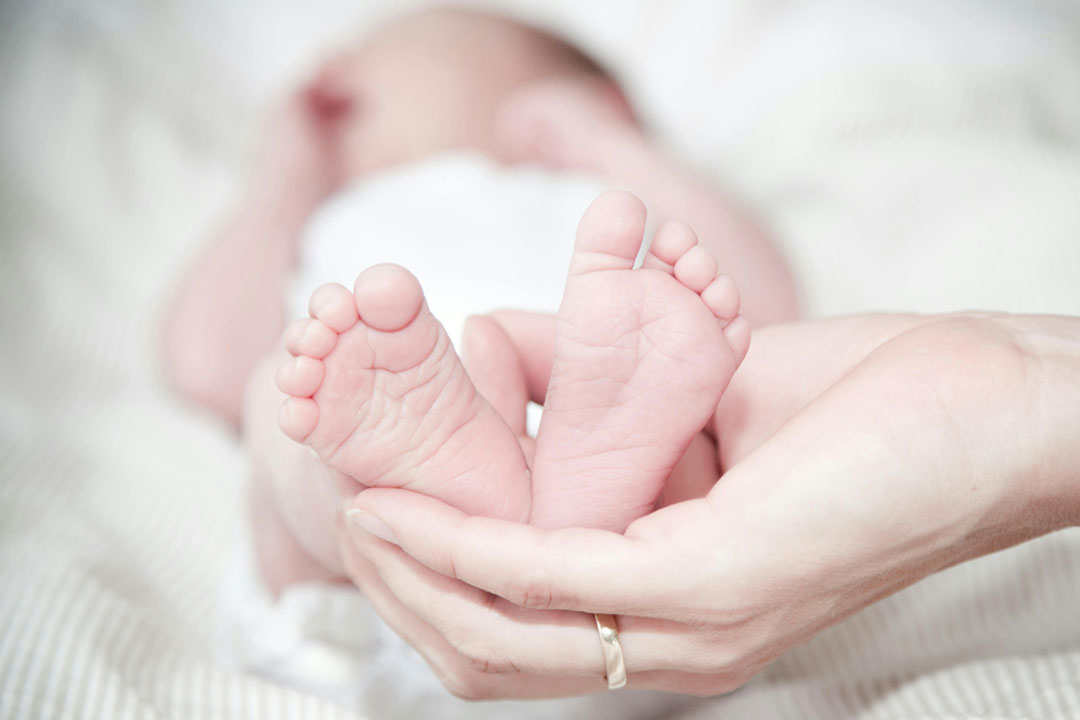COVID-19 vaccination in pregnancy protects newborns
Research highlights the importance of maternal vaccination to protect infants against severe COVID-19 until they are old enough to be vaccinated themselves.
- 19 February 2024
- 3 min read
- by Linda Geddes

Babies born to women who received a course of mRNA-based COVID-19 vaccinations or a booster dose during pregnancy are protected against symptomatic COVID-19 infection for at least six months, data suggests.
COVID-19 is especially dangerous for newborns and young infants, yet they are unable to be vaccinated until they are at least six months old. While previous research had suggested that protective antibodies could transfer across the placenta in women who had been vaccinated, it was unclear how strong and long the protection they afforded might last in their infants, and what the impact of a booster dose might be.
To investigate, Cristina V. Cardemil at the National Institute of Allergy and Infectious Diseases in Rockville, US, and colleagues followed 271 infants born to mothers who received two doses of a messenger RNA (mRNA) COVID-19 vaccine during pregnancy, and 204 further infants whose mothers received these, plus a third booster dose.
"In contrast to the first two years of the pandemic when the burden of disease was highest in adults, hospitalisation rates in infants under six months of age have surged during the Omicron period and are currently on par with those of adults aged 65 to 74."
– Cristina V. Cardemil, National Institute of Allergy and Infectious Diseases, Rockville, US
As well as analysing samples of the babies' cord blood at birth, the researchers evaluated the infants during at least one follow-up visit during their first six months of life. Their parents also reported whether they had become infected with COVID-19 or exhibited any symptoms.
The research, published in Pediatrics, found that newborns with high antibody levels at birth also had greater protection against COVID-19 infection during their first six months. And while the infants of mothers who received two vaccine doses had strong antibody responses at birth, those whose mothers had received an additional booster dose during pregnancy had both higher levels of antibodies at birth and greater protection from COVID-19 infection at their follow-up visits.
Have you read?
The study reinforces the importance of receiving both a COVID-19 vaccine and booster during pregnancy for both mothers and their babies. It follows separate evidence published earlier this month confirming that babies whose mothers were vaccinated against COVID-19 during pregnancy are at no greater risk of adverse events – and may be at lower risk of death and severe complications during birth.
In contrast to the first two years of the pandemic when the burden of disease was highest in adults, hospitalisation rates in infants under six months of age have surged during the Omicron period and are currently on par with those of adults aged 65 to 74, Cardemil said.
"Among infants who are hospitalised with COVID-19, more than half are previously healthy without underlying comorbidities," she added.
"Maternal booster vaccination during pregnancy is an effective strategy that provides [antibodies] that protect effectively against infection during early infancy."








